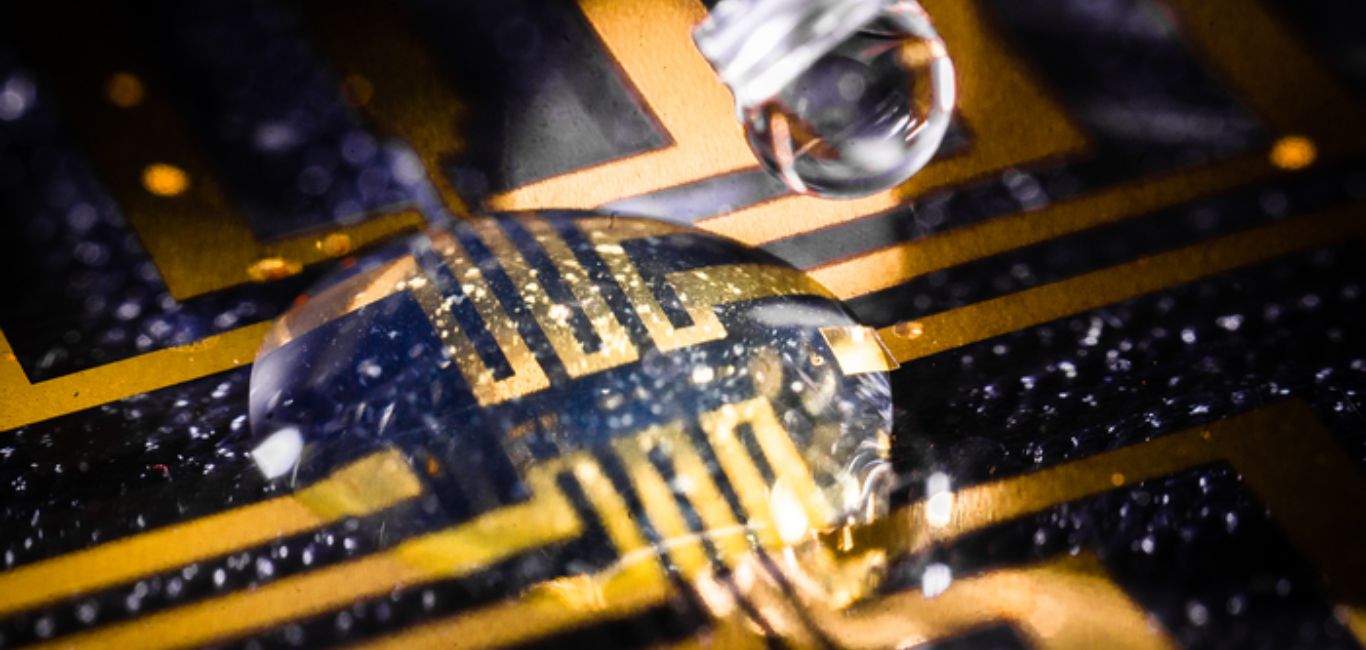
Luigi Galvani, Italian physician and physicist, conducted ground-breaking experiments in the late 18th century on the interaction of electricity and animal tissues. By observing how static electricity made dissected frog legs twitch and convulse, he discovered that a biological organism could conduct electricity through its nerves.
This led to the discovery of bioelectricity, or “animal electricity” as he termed it, marking the earliest recorded evidence of the interface between electronics and biology.
A few centuries later, metal electrodes emerged as a tool to record and stimulate signalling in living tissue. Examples of this are all around us – from pacemakers to deep brain stimulation.
While a lot of progress has been made in terms of electrode technology, there is still a need for better interfacing – one that allows chemical signalling to occur in parallel.
In a new study conducted by Swedish researchers at Lund University and Linköping University, they have tried to tackle this by using the tissues themselves to make electrodes, without relying on an external bioelectronic device to be placed within the body.
The making of built-in electrodes
This novel method involves the use of the machinery available within an organism to make functional electrodes. This would be a major improvement over current bioelectronic implants, which suffer from the rapid formation of scar tissue around the implants that affect their lifetime and precision.
To test this new method, the researchers injected a gel-like material into zebrafish and medicinal leeches, which was able to trigger the formation of electrodes.
“We enable electronics that grow in vivo (in the organs of the body) to form electrodes, in part built-up from components originating from the biological system itself,” said Professor Magnus Berggren at the Laboratory for Organic Electronics, LOE, at Linköping University and one of the main authors of the study.
The team were able to achieve electrode formation in the brain, heart, and tail fins of zebrafish and around the nervous tissue of medicinal leeches without causing any harm to the animals.
“Contact with the body’s substances changes the structure of the gel and makes it electrically conductive, which it isn’t before injection,” says Xenofon Strakosas, researcher at LOE and Lund University and another author of the study. “Depending on the tissue, we can also adjust the composition of the gel to get the electrical process going.”
Previously, it took implanted physical objects to start electronic processes in the body, but in the future, researchers say that injection of a viscous gel will be enough.
Future directions
Berggren says to make this happen, bioelectronic implants that are compatible with the human body need to be developed. While the gel his team developed seems to work in early trials, there is still a need to check its long-term use, both from an immune response and biocompatibility and biostability point of view.
“We are now heading towards single cell experiment to learn more about cell interactions and possibilities and also exploring the self-organized systems in more complex animal models,” says Prof Berggren.
The researchers say that their primary goal is to seamlessly integrate these electrodes with the nervous system. They want to do this with minimal invasiveness to derive new therapies for neurodegenerative diseases and disorders by studying chemical and electronic stimulation together.

















